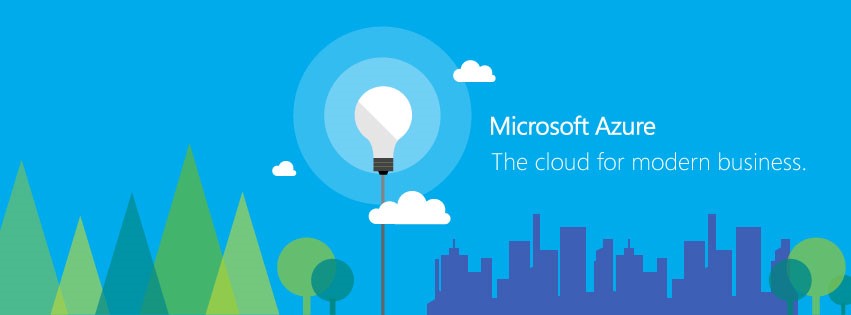
With Microsoft Azure, Microsoft is one of the biggest cloud vendors. They have a solid offering, covering a multitude of different products and services. Aside from typical cloud solutions for business, such as Office365, Dynamics CRM Online, SharePoint Online and so on, Microsoft also has a product portfolio for business intelligence, data warehousing and data science in the cloud.
Important to understand when talking about the cloud, is that there are many different cloud types:
- SaaS - Software as a Service: You are paying a fee to use the software. You don't become owner of the software, nor will you need to do maintenance and upgrades. Fees are most likely calculated on the number of users that have access, or based on the consumption. A good example is Azure Machine Learning Studio: the only thing users need is a browser to access the service. All development and configuration is done through the browser. Power BI falls into this category as well.
- PaaS - Platform as a Service: It's not specific software you are subscribing to, but a platform or a set of resources that enable you to deliver everything from simple cloud-based apps to sophisticated, cloud-enabled enterprise applications, all without the complexity of building and maintaining the infrastructure for them. You pay based on usage and the number of resources you are using. An example is the SQL Azure Database. This is a database hosted in cloud to which you can connect from anywhere you want. There are differences between a SQL Server instance hosted on premises and a SQL Azure Database in the cloud, but there are less and less every year. Backups and high availability are done for you, you only need to focus on the database development.
- IaaS - Infrastructure as a Service: You are renting infrastructure, provisioned and managed over the internet. The most common example of IaaS is virtual machines that are running in the cloud. You pay for the uptime of the Virtual Machine without being bothered with the hardware behind it. But do remember that you still need licensing and maintenance of the software running on the virtual machines. Basically, this is the same thing as running virtual machines in your own data center, except that the data center is now in the cloud. You can do the same things in a virtual machine in the cloud as you can on premises, such as running Integration Services packages, hosting Analysis Services cubes or rendering Reporting Services reports. One of the biggest advantages is that you can easily scale up or down the performance of the machines depending on the demand.
element61 is actively using the opportunities the Microsoft Azure platform is offering for Business Analytics in the Cloud. Some key products that are offered by the Azure Platform:
- Azure Synapse Analytics (previously called SQL Data Warehouse): A cloud-based, scale-out database capable of processing massive volumes of data, both relational and non-relational. Built on a massively parallel processing (MPP) architecture, SQL Data Warehouse can handle any enterprise workload. As you integrate and analyze, the data warehouse will become the single version of truth your business can count on for insights.
- Azure Analysis Services: The SaaS version of the on premises Analysis Services models. Its one of the newest additions to the cloud stack. At the time of writing, this offering is in preview and only supports SSAS Tabular models. It allows you to combine data from multiple data sources, define metrics, and secure your data in a single, trusted tabular semantic data model. The data model provides and easier and faster way for users to browse massive amounts of data for ad-hoc data analysis.
- Azure Databricks: A fully managed Spark environment to run a Unified Analytics Platform. Azure Databricks offers Databricks running on Azure Cloud resources and makes it easy, fast, and cost-effective to process massive amounts of data for both data engineering and data science. Databricks runs based on he popular open source framework of Spark and supports a broad range of scenarios, like extract, transform, and load (ETL), real-time streaming, delta, data warehousing and machine learning development
- Azure Batch: A fully managed compute management environment where data scientists & engineers can initiate parallel jobs across thousands of VMs. It’s a service particularly interested for repetitive parallelizable jobs where on-demand compute is required. Scripts can be written in R and Python and support is there for any open source framework.
- Azure Data Lake Analytics: An on-demand analytics job service that simplifies big data. It allows you to run data transformation and processing jobs that scale to massive data sets instantly without the effort of deploying, configuring, and tuning hardware. You only pay for your job when it is running, making it cost-effective.
- Azure Event Hubs: A streaming platform for simple, secure, and scalable real-time data ingestion, capable of receiving and processing millions of events per second. Event Hubs can process and store events, data, or telemetry produced by distributed software and devices. The data can be stored seamlessly in Blob Storage or Data Lake Storage for long-term retention or micro-batch processing with Event Hubs Capture.
- Azure Stream Analytics: An on-demand real-time analytics service to power intelligent action. It allows you to easily develop and run massively parallel real-time analytics on multiple IoT or non-IoT streams of data. You can process data, on-demand, scale instantly, and only pay per job, without having to manage any infrastructure. By combining Event Hubs and Stream Analytics, it’s possible to build an end-to-end serverless streaming platform.
element61 has already developed a best-practice approach for using the services in a Performance Management & Business Intelligence in the Cloud context.